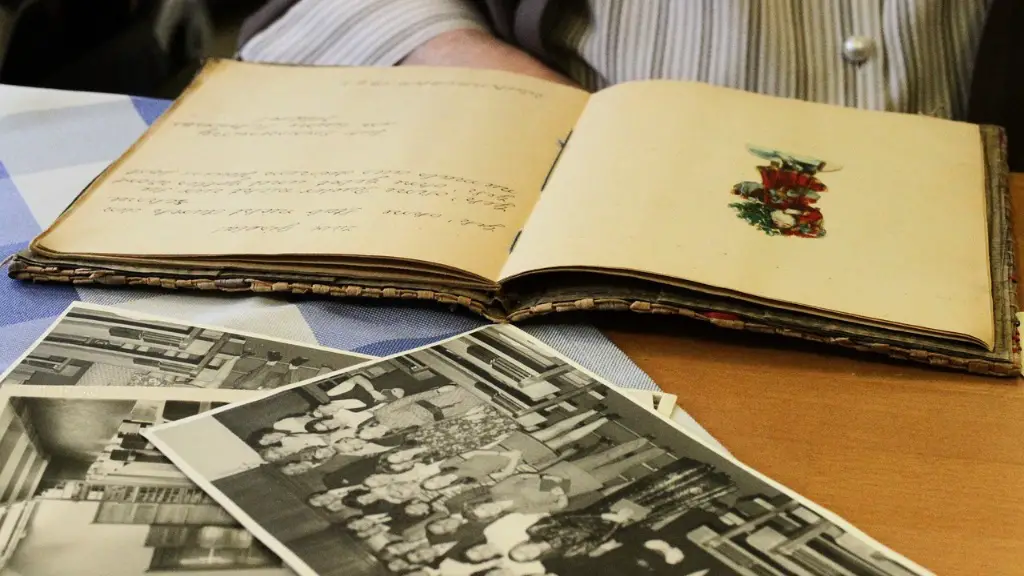Impact of Langston Hughes’ Writing
Langston Hughes is widely regarded as a hugely influential American poet, novelist and playwright who wrote during the Harlem Renaissance in the early 20th Century. His works emphasize the unique African-American experience and the struggles for justice and freedom that continue today. His work has inspired generations of African-Americans to express themselves and keep up the struggle for justice. Hughes’ is remembered today as one of the greatest literary figures of the 20th Century.
Hughes was born in 1902 in Missouri, the son of an African-American father and a white mother. He was raised by his grandmother who was a figure of immense influence in his life. During his teenage years he moved to Cleveland, Ohio and began to write. His first published poem, “The Negro Speaks of Rivers” was published in 1921 when he was just 19 years old. This poem was a sign of things to come, giving voice to the African-American experience and articulating the struggles that African-Americans faced in the early 20th Century.
Hughes was a prolific writer, producing not just poems, but plays, short stories, novels and children’s books. He was a committed communist and his writing often expressed the injustices of the capitalist-driven society in which he lived. His writing was also deeply influenced by jazz and blues music, many of his works having a uniquely musical quality. He was also heavily influenced by the Black Nationalism of Marcus Garvey, and his writings provide an insight into the hopes and dreams of African-Americans of his generation.
His works remain hugely influential today, both among African-American communities and more widely. His works were translated into multiple languages and his influence extended beyond the United States and into Europe, Latin America, Asia and Africa. His poetry has been performed on Broadway and been adapted for classical music and jazz, highlighting the universality of his musings on the marginalization of African-Americans.
Langston Hughes is credited with inspiring the civil rights movement of the 1950s and 1960s. His commitment to justice, equality and freedom resonated with a generation of African-Americans, who saw in his writing a way to articulate their struggle and a way to keep up the fight for justice. His works, particularly his poetry, touched a generation of African-Americans, offering them a way to express themselves and their frustration at their marginalization.
Langston Hughes was also an advocate of the arts. He was a strong believer in the power of art and literature to bring about change. He provided an important platform for African-American writers, who did not have the same access to mainstream outlets as other groups. He was a figurehead of the Harlem Renaissance and paved the way for generations of African-American artists and writers.
Langston Hughes’ Writing Style
Langston Hughes wrote in a style that was both distinctive and varied. His work was heavily influenced by music and his writing style often reflected this, with a musical rhythm and cadence that was distinctively his. His work also often had an air of nostalgia, reflecting on the African-American experience and identity, and the struggles and dreams of his people.
Many of Hughes’ pieces were written in “free verse”, allowing for a more improvisational approach. His poems often had a unique rhythm and rhyme to them, often reflecting the rhythm of jazz. He was also a master of metaphor and simile, often describing people and situations in vivid, often poetic terms. His writing style has been described as “lyrical and musical”, which captured the spirit and emotions of African-Americans of his time, and captured the hopes and dreams of a generation of African-Americans.
Hughes’ writing was also heavily influenced by his own personal history and experience. He drew heavily on his own childhood experiences, as well as the history and culture of African-Americans. His works often addressed issues of race, injustice and poverty, themes which remain pertinent to this day. His works also often touched on the desire for freedom and equality, themes which continue to resonate with African-Americans today.
Hughes’ work was also hugely influential on other African-American authors, with many poets and novelists citing him as an inspiration. His work has inspired generations of African-American writers, and continues to inspire African-Americans today. He was an important part of the Harlem Renaissance, and his work paved the way for generations of African-American authors.
Legacy of Langston Hughes
Langston Hughes was one of the most important literary figures of the 20th Century. He was an influence on multiple generations of African-Americans, inspiring them to express their struggles and keeping up the fight for justice. His works remain hugely influential today, with his poetry, short stories and novels still read by students, activists and writers around the world. He was also an important figure in the arts, an advocate for African-American writers and artists and a pioneering figure in the Harlem Renaissance.
Langston Hughes is credited with inspiring generations of African-Americans to find their voice, to articulate their struggles and to work for justice and freedom. His works provide an important insight into the African-American experience, and his commitment to justice, equality and freedom continues to inspire those who strive for a better world for all.
His legacy will remain an important part of African-American history and remains an inspiration for writers and activists around the world. His works remain a testament to the power of the written word and to the courage of African-Americans in their struggle for justice and freedom.
Harsh Criticism of Langston Hughes
Though Langston Hughes was highly respected and influential, his work was not without its critics. Some African-American literary figures such as Zora Neale Hurston criticized Hughes for what they saw as his pandering to white tastes and for focusing on African-American culture in a way that was superficial and conformist. Some argued that his work lacked depth and did not reflect the early 20th Century reality of African-Americans.
Other criticisms of Hughes’ work focused on its lack of revolutionary spirit. Some felt that his work lacked the radicalism of the Black Nationalism of Marcus Garvey or the civil rights activism of the 1950s and 1960s. Such criticism may have been unfair, however, given that Hughes was writing during an era when overtly political writing was seen as unacceptably controversial.
Other criticism of Hughes’ work has focused on the way that he portrayed African-American women. Hughes’ work often portrayed African-American women as either submissive or aggressive, with no real representation of the strength and resilience so often found in African-American women of the early 20th century. This criticism may be justified, but it is important to note that Hughes was writing in an era when representations of African-Americans were limited and often stereotypical.
Langston Hughes continues to be a hugely influential figure in American literature and African-American culture. Though his work has attracted its fair share of criticisms, it remains an important part of African-American history and an inspiration to writers and activists around the world.
Influence of the Harlem Renaissance on Langston Hughes
The Harlem Renaissance was an important moment in American history and had an important influence on Langston Hughes. It was an intellectual, cultural and artistic explosion that occurred in Harlem, New York in the 1920s and 1930s. During this period there was an explosion of African-American culture, with writers, poets and artists creating works exploring issues of race, identity and politics.
Langston Hughes was a key figure of this period. His works were highly influential and helped to give voice to the African-American experience. During this period his works were widely published and his influence was felt in all aspects of African-American culture. Hughes was an important figure in the Harlem Renaissance, paving the way for generations of African-American authors and artists.
The Harlem Renaissance provided an important platform for African-American writers, who did not have the same access to mainstream outlets as white writers. Hughes’ works were widely read and translated into multiple languages, highlighting their universal themes and resonating with readers around the world. His works helped to bring the struggles of African-Americans to a wider audience, and to provide a platform for African-American writers to express themselves.
The influence of the Harlem Renaissance on Langston Hughes should not be underestimated. It provided an important platform for Hughes to express himself and create works that resonated with a generation of African-Americans. The Harlem Renaissance is an important part of African-American history and the works of Langston Hughes remain an important part of this history and a testament to the power of literature to bring about change.
Langston Hughes’ Influence on Modern Day Writers
Langston Hughes’ work has had an important influence on subsequent generations of African-American writers. His works remain hugely influential in African-American literature, inspiring generations of authors to explore issues of race, injustice and identity. His works have also served as an important source of inspiration in the fight for justice and freedom.
Many subsequent African-American authors have cited Hughes as an influence, citing his work as an inspiration for their own works. His influence can be felt in the works of Maya Angelou, Alice Walker, Toni Morrison, James Baldwin and many other contemporary African-American writers. His works have touched a generation of African-American writers, and his influence on contemporary African-American literature is undeniable.
Hughes’ also had an influence on African-American theatre and film. His plays tapped into African-American culture and experience, and were hugely influential on subsequent African-American theatre and cinema. His works were adapted for the stage and for television and film, highlighting the relevance of his works to the modern day.
Langston Hughes’ legacy remains an important part of American literature and African-American culture. His work has inspired generations of African-American writers, and serves as a powerful reminder of the resilience and determination of African-Americans in the fight for freedom, justice and equality.





